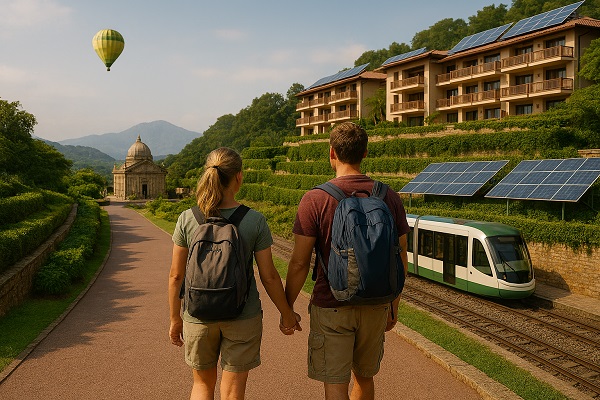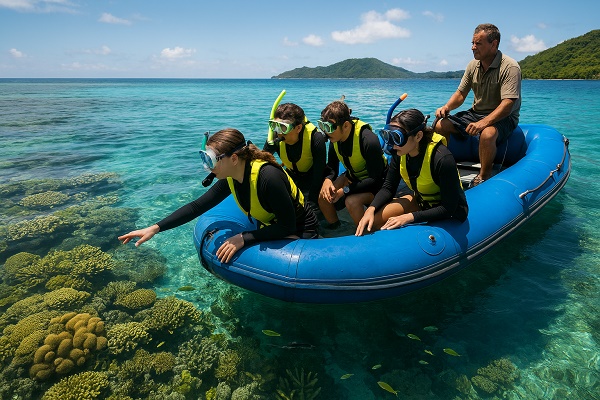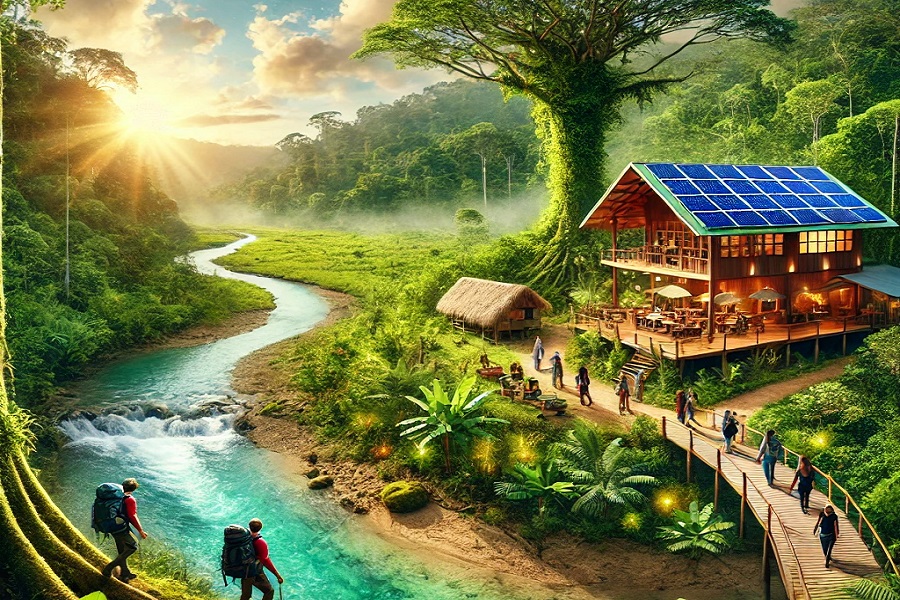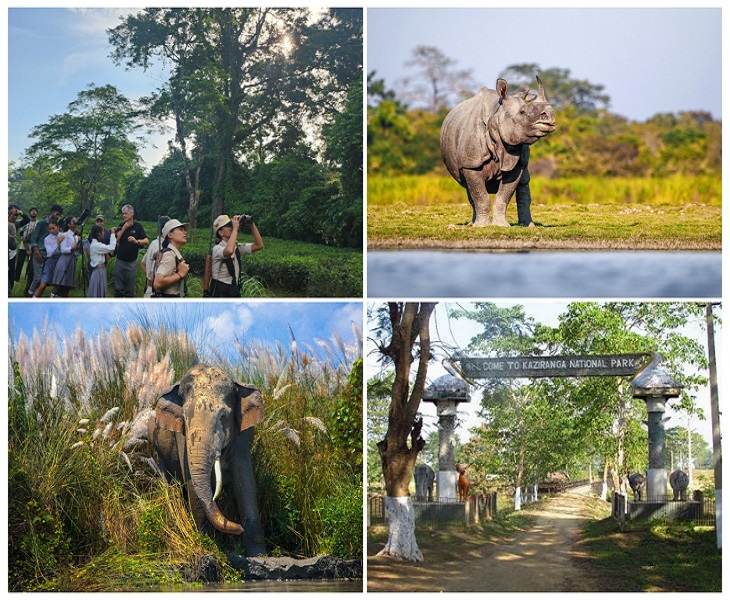Market Boom: Sustainability in Demand

The global ecotourism market is forecasted to grow from $210B in 2023 to nearly $830B by 2035, with an 11.7% CAGR
Travelers increasingly seek meaningful interactions through wildlife viewing, nature treks, cultural immersion, and conservation-focused travel
2. Shifting Traveler Priorities
Community-led experiences are now favored—tourists want to connect with local traditions, crafts, and livelihoods
The rise of eco-luxury offers upscale comfort in environmentally conscientious settings—think solar-powered lodges and wellness retreats
Slow travel is gaining popularity: fewer stops, longer stays, deeper connections—perfect for sustainable impact
3. Tech-Driven Transformation
VR-based orientation and trip planning apps are helping reduce footprint and improve conservation awareness—Thailand’s virtual reef tours and Galápagos VR orientation are prime examples
AI-driven itineraries and real-time sustainability metrics are making eco-travel more accessible and impactful
4. Wildlife & Marine Conservation Focus
Ethical safaris and marine conservation tourism—like coral-reef restoration and beach cleanups—are major draws in 2025
Over 50% of ecotourism revenue still comes from nature and wildlife, but growing interest spans cultural, adventure, and culinary eco?experiences
5. Regional Highlights & Innovations
Asia-Pacific, including India, leads in growth—diverse ecosystems meet cultural richness and vibrant community tourism .
Türkiye, Spain, Colombia, and Kenya are increasing community-based models, sustainable wellness retreats, and diversified offerings
India is expanding infrastructure: Uttar Pradesh piloted motorhomes in tiger reserves (“Buffer Mein Safar”) and Dudhwa welcomed record visitors
Why It Matters
Local impact: Supports livelihoods, empowers communities, and invests in conservation through tourism revenues
Environmental care: Minimizes footprint through sustainable lodging, transport, and VR guidance
Cultural preservation: Enables sharing of heritage and crafts, keeping traditions alive.
What’s Next
Regenerative travel: Going beyond “do no harm”—travel that actively improves ecosystems (e.g., planting trees, river cleanup) .
Urban ecotourism: Rewilded parks, green trails, rooftop gardens, and farm-to-table in cities—making eco?travel accessible
Takeaway
Ecotourism in 2025 is no longer a niche—it’s booming into a mainstream, technology-enhanced movement. Whether you’re trekking through a rainforest, staying in a solar-powered eco-lodge, or engaging in village conservation projects, sustainable travel is enriching the world’s natural and cultural fabric.
























